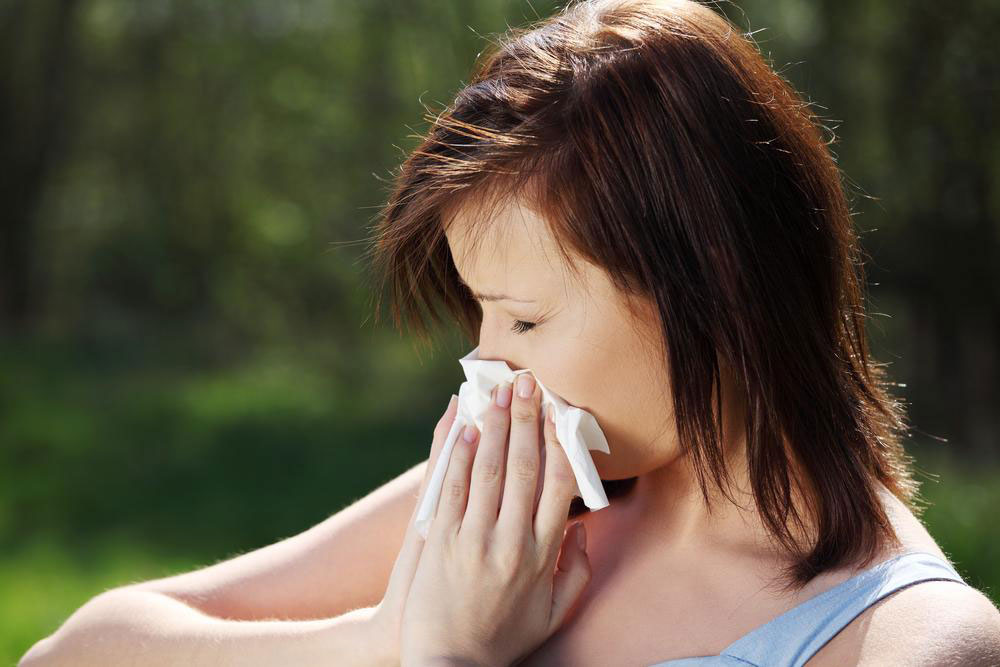Best Treatments for Allergy Cough
Coughing can be caused by cold or flu, but it can also be a symptom of an allergic reaction. To treat a cough that’s caused by allergies, you can try traditional remedies. In fact, these remedies can sometimes be effective in treating cough caused by flu and cold.
Allergy Cough Treatment
Whether caused by cold or allergies, a bad cough can be irritating and chronic coughing can cause pain and tiredness.

- Medications
You can try decongestants, cough suppressants, and expectorants. Decongestants help by drying up mucus, reducing inflammation, and opening up air passages. Cough suppressants soothe the throat and block the cough reflex. Expectorants thin the mucus, making it easy for you to spit it out. Decongestants can increase blood pressure, so those with cardiac issues should consult a doctor before using decongestants. - Hot Shower
The heat can help decongest your nose and reduce post nasal drip that tickles your throat and causes coughing. - Lots of Water
Always stay hydrated as it helps prevent many ailments and helps clear toxins from the body. It also helps to thin out the mucus and prevent throat dryness that can also cause coughing. - Mentholated Syrup
A mentholated cough drop or syrup can help to soothe and numb the throat. It can also ease the pain and irritation.
Best Home Remedies for Allergy Cough Treatments
Many traditional remedies have been used for several years, to treat a cold and allergic cough. Here are a few of the best allergy treatments that you that can try:
Honey
Honey is a traditional remedy for a cough. It lubricates the throat and acts as a natural cough suppressant. Take a spoonful of honey and swallow it slowly, one sip at a time and let it go down your throat slowly. Mix a tablespoon of honey in warm water and drink it slowly. Make a herbal drink with warm water and lemon juice. Add honey to this and drink it when it is warm.
Salt Water
Add a half teaspoon of salt to a glass of lukewarm water. Gargle this mixture, to clear your throat of mucus and other substances. This helps to help soothe the throat. This also reduces throat irritation that causes a cough.
Essential Oils
Eucalyptus oil, peppermint oil, etc can help to relieve a cough. You can add a few drops of these oils to water and spray it all over your room. You can also take a drop of the oil on your hand and apply it on your throat and nose. Don’t do this if you are allergic to intense scents.
Thyme
Thyme contains flavonoids that reduce inflammation and help in relaxing the throat muscles. This reduces the frequency of coughs. Make a herbal drink by adding two spoons of crushed thyme leaves to boiling water. Cover it and steep it for a while to extract the essence. Strain this mixture when it has cooled down, and drink it.
Ginger
Ginger can act as an antihistamine and anti-inflammatory. This is especially helpful in relieving allergic cough. Take a tiny piece of fresh ginger, peel it, and add it to water that is being heated on a stove. Let the water boil for a few minutes and switch off the stove. After it has cooled down, filter it. You can add some honey to this and drink it for allergy cough relief.
Turmeric and Carom
Turmeric and carom can act as an expectorant and also soothe the throat muscles. Turmeric also has powerful anti-viral properties. So, whether you have a cough that is caused by an allergy or cold, turmeric can help. Mix a teaspoon of turmeric powder and a teaspoon of carom seed powder in warm water, stir it well and drink this mixture for immediate relief.
Basil Leaf
Basil has antimicrobial properties and can provide relief from a cough and cold. Put a bunch of fresh clean basil leaves in boiling water, steep it for 10 to 15 minutes. Strain this, add honey and drink it. You can also make a paste of basil leaves and add ginger paste to this. You can then strain this paste mixture through a sieve, mix it with honey, and consume this to get relief from a dry cough.
Mint
Mint or peppermint leaves can also be an effective allergy cough treatment. Mint acts as a decongestant. It also soothes and numbs the back of your throat, providing pain relief and preventing throat irritation. You can make peppermint tea. You can also add peppermint to hot water, and inhale the steam.
Top Preventive Measures for Allergy Cough
- Identify the allergens that trigger your symptoms like watery eyes, runny nose, and cough
- Know what affects you and avoid them to prevent such triggers
- Take antihistamine medicines to control your allergic reaction
- Wash your hands after you get back home after work
- Wear a face mask to reduce the chance of inhaling pollen, pet dander, or other allergens when you go out
- Strengthen your immune system by including nutritious food like broccoli, kale, garlic, and onion in your diet.
- Herbs and spices like turmeric and basil can also help to strengthen your immune system.
An allergic reaction can take many forms. When it triggers a cough, it can be hard to find the root cause. Learn to identify the difference. Use decongestants and antihistamines to treat your allergies.
Also, try the home remedies mentioned above as they can be effective in treating cold or a flu-induced cough as they are some of the best allergy cough treatments available.


